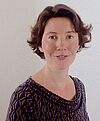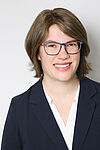Members
Building: 24.54
Floor/room 01.84
+49 211 81-13228
Marion Aptroot studies early modern translations and adaptations into Yiddish. She uses approaches from translation theory with a special focus on translation within tradition, e.g. translations of the Bible by translators familiar with existing versions. She is also a translator of Yiddish texts for scholarly editions.
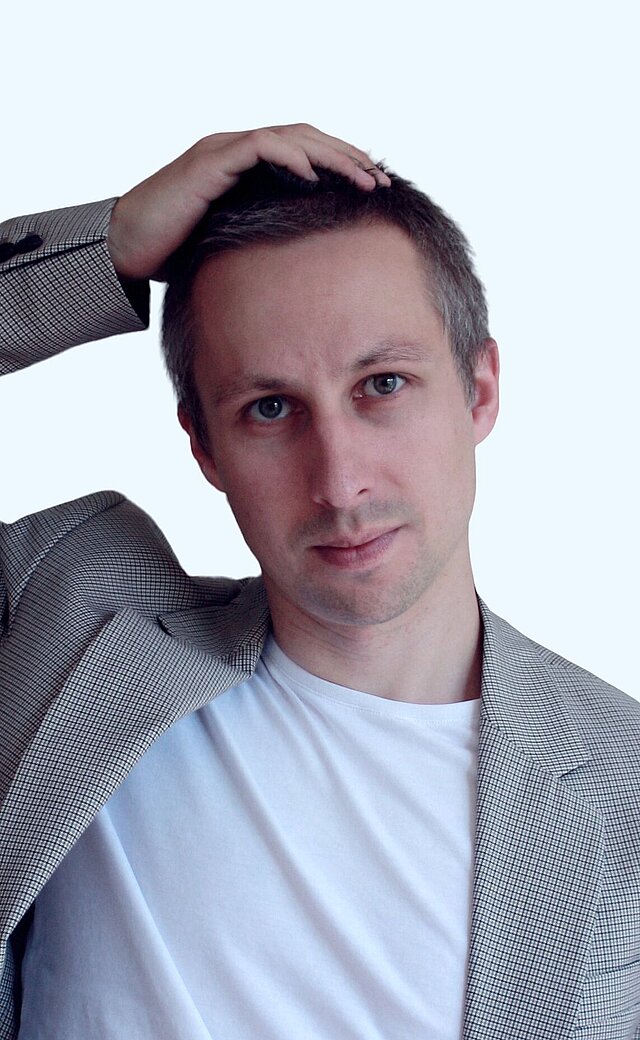
Building: 24.54
Floor/room: U1.86
As a literary, media and cultural theorist, Martin Bartelmus is interested in the tensions between theory and translation. In his work he refers to French Theory, Object-Oriented Ontology, New Materialism and Psychoanalysis. He is also interested in Cultural and Literary Animal Studies and Literary and Cultural Plant Studies as well as time-based media, photography, and in questions of digital writing.
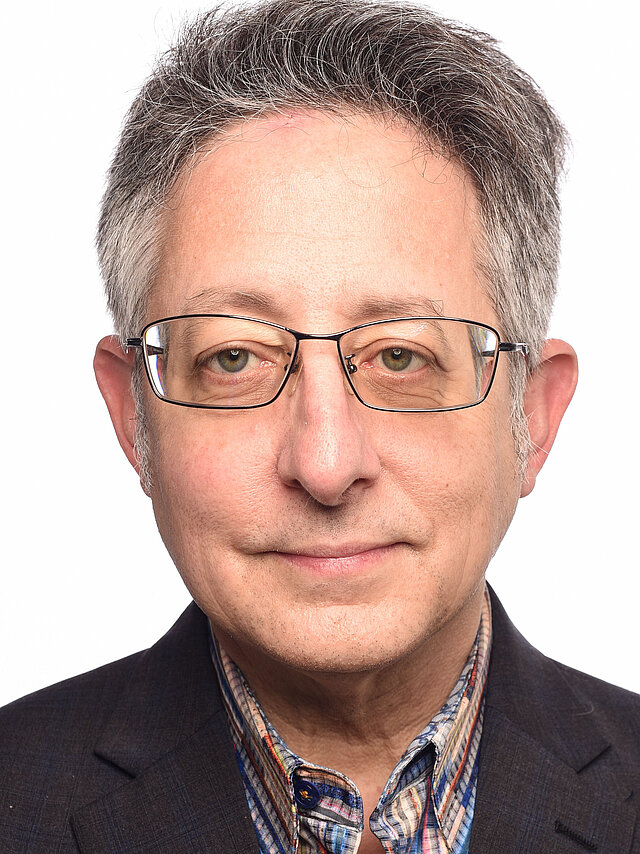
Building: 24.54
Floor/room: 01.81
Marc Caplan is a native of Louisiana and a graduate of Yale University. Since earning his PhD in comparative literature from New York University he has held teaching and research positions at Indiana University, the University of Pennsylvania, Harvard, Johns Hopkins, the Center for Jewish History (New York), the University of Michigan, Yale, Tel Aviv University, Wroclaw University (Poland), and Dartmouth College (New Hampshire). His research focuses primarily on modern Yiddish literature in comparison with African literatures in English and French (the subject of his first book), German literature (the subject of his second book), and more broadly with modern culture including film, television, theatre, and music. At Heinrich-Heine University he will be teaching primarily modern Yiddish literature and culture along with courses on modern Jewish culture more broadly, with a focus on nineteenth and twentieth century culture in the US and Europe.
Building: 24.52
Floor/room: U1.31
+49 211 81-14098
His research interests in the context of translation studies involve
translation processes 'between' and within cultures as well as
dynamic, process-oriented concepts of culture and transculturality on
the one hand. On the other hand, he is also specifically interested in
traces of translation in literary texts, e.g. in contemporary
German-Turkish literature.
Building: 23.21
Floor/room: 02.44
+49 211 81-11534
Miriam Edlich-Muth uses approaches from the fields of digital philology, material culture and translation theory to analyse the processes of translating and disseminating texts across dialectal, linguistic and cultural borders in late medieval Europe. Her current projects include research into pre-and post-national approaches to multilingualism and translation, in collaboration with Prof. Birgit Neumann, as well as digital analysis of source language influence in medieval text adaptations (see Edlich-Muth and Edlich-Muth, "A Computational Approach to Source Adaptation in Thomas Malory’s Morte Darthur" (2019). She is sole PI of the DFG-funded project "From Insular to European Romance: The Medieval Bevis-Tradition in Multi-Text Manuscript Contexts" (2020-2023) and is also currently hosting Dr. Lucie Kaempfer’s SNF-funded project "Translating Feeling and Identity in 'Partonopeus de Blois'" (2020-2021, 2021-2023).
Building: 23.31
Floor/room: 04.76-78
+49 211 81-14293
Efrat Gal-Ed is a literary translator specializing in translating Hebrew and Yiddish poetry into German. Among her publications are bilingual poetry volumes by Avraham Ben Yitzhak (with Christoph Meckel 1994) and Itzik Manger (2004, extended edition 2016). Her theoretical research focuses on translation strategy and the issues of cultural translation.
Building: 24.51
Floor/room: 00.21
+49 211 81-12981
In her research and teaching, Vera Elisabeth Gerling focuses on the connection between the theory and practice of literary translation. Furthermore, she explores phenomena of reception in the cultural exchange between Europe on the one hand and Latin-America and Africa on the other, especially in German-speaking areas. Broadening the concept of translation, she also explores phenomenological questions pertaining to the translation of lived experience into texts. Both concepts of translation are linked within her research on memory as a process of transcultural entanglements. She is a graduate of the HHU’s study programme in Literary Translation. At HHU, she teaches Romance Literary Studies and Literary Translation.
Building: 24.52
Floor/room: 00.31
+49 211 81-12984
As a linguist, Rolf Kailuweit studies the semiotic effects of translational processes. On a theoretical level, his research is based on Derrida and Flusser. In empirical research, his focus is on the analysis of “translanguage spaces” (Wei Li), such as those emerging in migration contexts (e.g. Italian migration in Argentina), the renewal of argots (in France or Argentina) or in processes of accommodation between speakers of pluricentric languages (like Spanish or French).
Building: 24.54
Floor/room: U1.84
+49 211 81-10031
Alexander Nebrig works on the history of translation, in particular on the translation of French literature into German during the Age of Enlightenment. His current research focuses on the crossroads of the history of poetics and the history of translation rights since the 19th century. Using German-language as an example, he examines how authors conceive their works for a multilateral audience and how literature changes as it stages multilingual configurations.
Building: 23.21
Floor/room: 02.078
+49 211 81-12205
Birgit Neumann works in the fields of translation studies and world literatures. She is particularly interested in the role of English as the world's most powerful language and the Anglo-centricity of the world literary sphere. In her recent publications, she explores how the hyper-centrality of English is challenged by the use of vernaculars and multilingualism. She is currently working on a monograph dedicated to the ways in which transcultural literary texts "unforget English" (Walkowitz) and transform it into a language of encounter, i.e. a pluralized and localized idiom that accepts its multilingual environment.
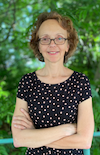
Building: 24.51
Floor/room: 00.22
+49 211 81-14377
Martina Nicklaus is a Romance linguist and teaches, among other things, literary translation from French and Italian into German in the MA programme Literary Translation. Her aim is to draw on linguistic findings for an informed selection of solutions in the target language. One of her main areas of research is contrastive linguistics with a special focus on options of linearisation, which are not only to be grasped in terms of their systematic functions, but also have to be explored in terms of their rhythmic potential.
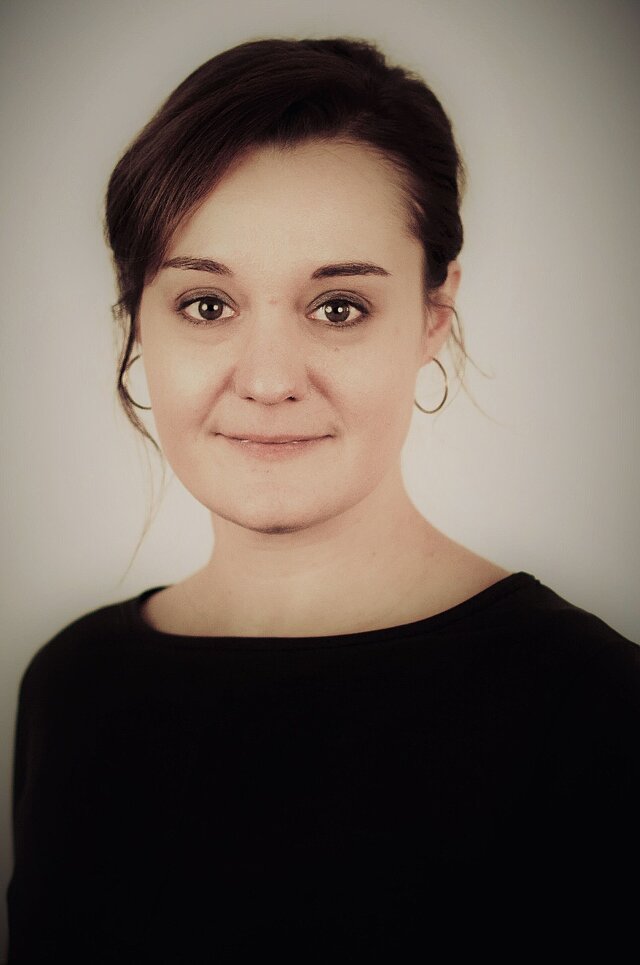
Dr. Hannah Pardey is a post-doctoral researcher. She obtained her doctoral degree at the University of Hanover where she taught before transitioning to HHU in 2023. As of 1 October, she teaches in the Department of Anglophone Literatures / Literary Translation and coordinates the programme of the Centre for Translation Studies. She has published articles and chapters on the intersections of postcolonial cultural studies and middlebrow studies, digital reception studies and the history of emotions. Her monograph Middlebrow 2.0 and the Digital Affect was published with Liverpool University Press in November 2023 and concerns the material conditions of producing, distributing and consuming the new Nigerian novel online. Her next book project is tentatively titled "Multilingual Mariners: Nineteenth-Century Writing and Reading Cultures at Sea".
Building: 24.51
Floor/room: 00.27
+49 211 81-12970
Linguist Elmar Schafroth (Romance Studies) is primarily interested in formal and content-related differences between phrasemes (in the broader sense) of different languages. These include semantic/pragmatic characteristics, but also syntactic peculiarities such as valency patterns and affinities to certain syntactic structures. This perspective is currently being implemented in the DFG research project "Use-based Phraseology of Italian". Another area of interest is the subtitling (and translation) of dialogic dialect passages in films. In his teaching, he regularly addresses the strengths and weaknesses of machine translation (e.g. DeepL).
Building: 23.21
Floor/room: 02.84
+49 211 81-14925
Regina Schober is interested in translation studies from the perspective of media change, considering adaptation practices (for example from music to literature or literature to film) as forms of intermedial translation. Also, translation processes become increasingly relevant in posthumanist conceptions of machine agency, artificial intelligence, and transpositions between data and narrative, all of which have wide-ranging implications for cultural translation processes.

she/her
Building: 23.21
Floor/Room: 02.097
Tel.: +49 211 81-14564
Office Hour:
by appointment
Christina Slopek-Hauff is a doctoral student and lecturer in the department of Anglophone Literatures / Literary Translation at the institute of English and American Studies. Her research and teaching often focus on interfaces of postcolonial literatures and medical humanities, with ramifications into queer and gender studies. Questions regarding translation and translatability reoccur in Christina Slopek-Hauff’s work, not least in her class on (self-)translation in Anglophone Arab narratives. Christina Slopek-Hauff has published in Anglia, Gender Forum and Storyworlds.
Building: 23.21.
Floor/room: 02.102
+49 211 81-14649
Send email
Kevin Tang is a University Professor in English Linguistics with specialisations in Phonetics/Phonology/Morphology at Heinrich Heine University Düsseldorf. He also holds a courtesy appointment at the University of Florida in Computational Language Science. He directs the Speech, Lexicon, And Modeling lab which is dedicated to cutting-edge research at the intersection of speech production and perception (phonetics/phonology/morphology) with speaker's knowledge of words (lexicon). His research interests lie in computational linguistics with a special interest in phonetics and phonology. He conducts data-intensive research on linguistic variations, Digital Humanities, interdisciplinary research in health and language technology.
His interest at the Centre for Translation Studies lies in the intersection between linguistics, cultures, and technology. He investigates the limitation of language technologies in terms of linguistic, social and cultural biases, and how we can develop more equitable language technologies.
Relevant funded projects:
* National Endowment for the Humanities's Humanities Collections and Reference Resources Award ($349,990): Reanimating African American Oral Histories of the Gulf South: Tailoring Education and Research through Natural Language Understanding
* University of Florida Clinical and Translational Science Institute Precision Health Initiative Pilot Project Award. ($49,004): `A Sociolinguistic-Enabled Web Application to Precision Health Intervention for African Americans'.
Building: 24.51
Floor/room: 01.24
+49 211 81-11956
Eva-Maria Troelenberg looks at visual and material encounters in contact zones. The epistemic lens is transcultural and transregional visual history, seizing the agency of objects, images, collections, and archives. She focuses on the period after ca. 1800, always connected to larger historical constellations: How do art, visual and material culture activate or reflect cultural encounter, conflict, and historical change? How are biographies of artefacts shaped across time and space by the interactions of various actors and forms of perception, from individual art appreciation to shifting political frameworks? Eva-Maria Troelenberg’s main fields of interest include cultural exchange and the larger modern Mediterranean, canon and canon critique, museum theory and the history of collecting and exhibitions in a cross-cultural context, the historiography and reception of Islamic art and Islamicate aesthetics in the colonial and postcolonial age, migrations, object-biographies and cross-cultural heritage.
Associated Members
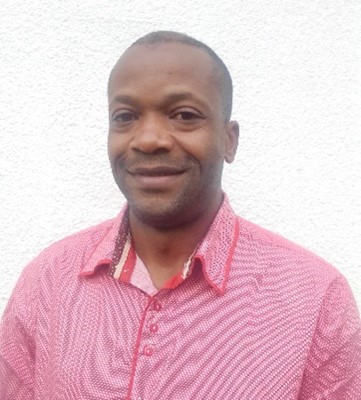
After having worked for several years as a teacher of German in schools throughout Cameroon, Hypolite Kembeu was appointed as school Vice-Principal at the Bangoulap High School in 2015. In conjunction with his teaching activities, he continued his studies and successfully completed a master's thesis with a focus on literary translation in 2015. In September 2019 he started working on his dissertation in the field of literary translation as a DAAD research fellow at HHU's Institute for Romance Studies. His work was supervised by apl. Prof. Dr. Vera Elisabeth Gerling and Univ.-Prof. Dr. Alexander Nebrig. In 2023 he successfully disputed his dissertation on the topic "Politisch korrekt übersetzen? Zum Einfluss von sozialhistorischen und -politischen Faktoren auf das Übersetzen von postkolonialen afrikanischen Literaturen ins Deutsche" and became associated member of the Centre for Translation Studies.
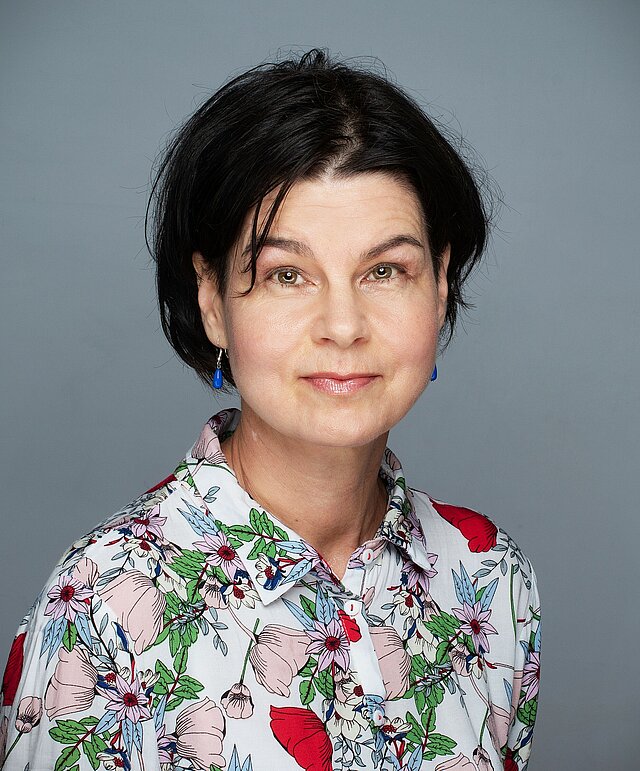
Eva Ulrike Pirker studied New English Literatures, American Studies and Philosophy in Tübingen and San Diego and received her PhD in English Philology at the University of Freiburg. Her main research and teaching interests are in the field of Anglophone, Postcolonial Literatures and Cultures and the examination of transcultural as well as intermedial processes in literature and other art forms. These fields of inquiry are characterised – sometimes literally, sometimes figuratively – by translational processes. When studying translation practices, she is particularly interested in the tension arising from artistic claims to autonomy on the one hand and the confrontation with alterity on the other – a tension which manifests itself on all levels of a translation process. She coordinated the CTS until she became Professor of English and Comparative Literature at VUB Brussels as of 1 October 2023.

Christine Richter-Nilsson is a literary scholar and translator, and a former theater dramaturg. Dr. Richter-Nilsson received her Ph.D. in German Studies at Vanderbilt University, where she also served as a Lecturer before she was appointed Visiting Assistant Professor at Syracuse University. After returning to Germany in 2019, she taught at Bard College Berlin and in the MA Program of the Department of Anglophone Literatures and Literary Translation at Heinrich-Heine-Universität in Düsseldorf. In 2022, she was awarded a DÜF-Gastdozentur by Deutscher Übersetzerfonds to teach translation theory and practice at the University of Stuttgart. Her current book project examines how American playwrights of color use theater adaption as a means of post-colonial and feminist critique. Her research and teaching focuses on (trans)cultural identity, race and gender discourses in transnational and post-colonial literatures, and the role of the translator subject. Among her significant achievements is the German translation of Teju Cole’s Open City (Suhrkamp, 2012), which was awarded the Internationaler Literaturpreis Haus der Kulturen der Welt Berlin in 2013, and the co-edited anthology Voices from Undergroundzero, Neue Theaterstücke aus New York City (Theater der Zeit, 2008). Her last translations include Simone de Beauvoir. Ein modernes Leben (Piper, 2020) and the essay „Gertrude Stein und der Unterschied, den sie macht“ in Toni Morrison Selbstachtung, (Rowohlt, 2020). She has been invited as Translator-in-Residence at Yaddo’s Artist’s Community and Ledig House, OMI Internationals Arts Center. In the summer semester 2023, she has received her second DÜF-Dozentur at the Universitiy of Stuttgart and teaches a seminar on the theory of translation.
Among her academic publications are "Scheitern an der monolingualen Hölle. Ferudin Zaimoglus Überschreibung von Othello mit deutschem 'Dreck'", "Schändung, eine Übermalung. Botho Strauss' theatralische Transformation einer Übersetzung", "Begegnung am Rand. Über Korrespondenzen mit Friedrich Nietzsche" which is a German translation of an article by Kathryn McEwan, as well as ""Ei Mensch, ei tierische Mensch und doch ei Vieh, ei bête...": Der Fall Mensch oder die Dramaturgie des Diskurses in Woyzeck."
Belén Santana studied Translation and Interpreting in Madrid and Heidelberg. After several years of experience working as a technical and literary translator, she received her doctorate in Translation Studies from Humboldt University, Berlin, with a dissertation on translating humor. She has been teaching at the Faculty of Translation at the University of Salamanca since 2003 and works as a freelance literary translator. She has translated modern classics by authors such as Alfred Döblin and Siegfried Lenz, as well as contemporary authors of fiction (Ingo Schulze, Julia Franck, Saša Stanišić, Anne Weber) and nonfiction (Carolin Emcke, Navid Kermani) into Spanish. Her research focuses on the translation of humor, bridging the gap between theory and practice of Literary Translation on the basis of didactics, as well as the digitalization of library catalogues as a basis for a cultural history of Translation. Her translation of Yoko Tawada's novel Etüden im Schnee was awarded the Spanish National Prize for Translation in 2019. Belén Santana is a member of the Spanish Association of Literary Translators and is on the editorial board of the journal Vasos comunicantes. Currently, Belén Santana is a fellow at HHU’s Centre for Translation Studies.




